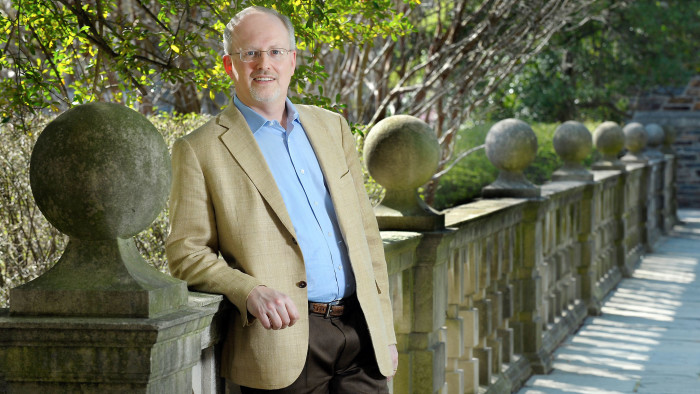Islamic finance sits awkwardly in a modern business school

Simply sign up to the Business education myFT Digest -- delivered directly to your inbox.
UK business schools and universities lead the non-Muslim world in the teaching of Islamic finance, with at least nine institutions teaching an MBA or similar which refer to Koranic principles. These include Durham, Aston, Bangor, Salford and Cass Business School. Only business schools in the Gulf, Malaysia, Pakistan and Indonesia rival the UK in offering pedagogy based on a seventh-century religious code.
Yet Timur Kuran, professor of economics and political science at Duke University and a leading authority on Islamic economics, argues that Islamic finance is a faith-based fabrication that sits awkwardly in a modern business school.
What is Islamic or sharia finance?
Islamic economics requires financial transactions to be free of interest. The replacement of interest with “profit and loss sharing”, say its proponents, serves to direct capital to its most productive users, as opposed to individuals with the best connections, collateral, or social status.
Why do you consider it bogus?
Islamic banking, in its current form, will go down in history as a mighty deceit based on an operational principle that is simply unfeasible. Islamic banks give and take interest as a matter of course, though under the guise of commissions, fees, penalties or profit shares. The holder of a “halal” credit card pays a penalty on unpaid balances; this penalty is proportionate to the size of the balance, which makes it equivalent to interest.
The sharia code was suited to the Middle Ages, when it assumed its classical form. At least on matters of economics and finance, it has not advanced measurably since then. To regain economic usefulness, it would have to be modified so extensively as to make it unrecognisable.
Can supposedly objective centres of learning such as international business schools teach economics constructed around rules derived from a holy book?
We need to distinguish between studying a doctrine or phenomenon and training practitioners. Within academia the proper place for training practitioners of Islamic finance is divinity schools, where beliefs may be treated as sacred and left unquestioned. It is not the place of an economics, business or law programme to teach future bankers the tricks of disguising interest. As a global phenomenon involving hundreds of billions of dollars, Islamic finance may be studied and should be studied, dispassionately within multiple core disciplines and professional schools.
But global sharia assets could reach $1.8tn this year. Can business schools ignore this large sector?
It should not be ignored. Business schools should use the tools of the social sciences to understand the social, political, economic and of course religious forces that account for its growth.
Presumably Islamic finance and economics dominate the curriculums of business schools across the Muslim world?
Not at all. The overwhelming majority of the Muslim world’s business schools teach the economics taught at the world’s leading business schools. A few require a sprinkling of Islamic courses. It is generally understood that these courses have little practical value.
What development in the teaching of Islamic economics can you foresee?
Funding for Islamic economics programmes is tied to oil wealth. If oil prices stay high, legitimacy-seeking Arab oil producers will continue to finance such programmes. The role that fundraising now plays in academia practically guarantees the promoters of Islamic economics will find university administrators willing to accommodate their requests.
Comments